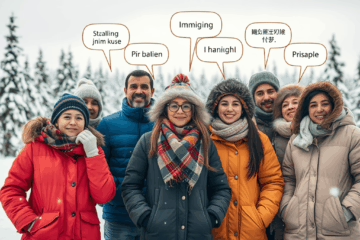Table of contents
Iranian mandatory military service has been a longstanding requirement for male citizens, impacting various aspects of their lives, including international travel and immigration. For those seeking to move to Canada, this military service can pose specific challenges, particularly concerning visa applications. This article delves into the intricacies of Iranian military service, the hurdles veterans face in obtaining Canadian visas, and how issues of inadmissibility and misrepresentation can be addressed.
Overview of Iranian Mandatory Military Service
In Iran, military service is compulsory for all male citizens over the age of 18, with few exceptions. This requirement is deeply embedded in the country’s socio-political framework, aiming to bolster national defense capabilities. Typically, the service duration ranges from 18 to 24 months, although variations can occur based on education level, health status, and other factors. The Iranian Revolutionary Guard Corps (IRGC), a prominent military branch, often plays a significant role in this conscription process.
The IRGC’s involvement in military service has far-reaching implications, given its controversial international standing. The IRGC is designated as a terrorist organization by several countries, including the United States. This designation can complicate matters for Iranian veterans when they seek to travel or immigrate abroad. The association with the IRGC can inadvertently affect perceptions, leading to additional scrutiny during visa applications.
While military service is a rite of passage for many Iranian men, it also serves as a critical juncture in their lives. The skills and experiences acquired during this period can be valuable, yet they come with the burden of potential international repercussions. Understanding the complexities of this mandatory service is crucial for comprehending the challenges faced by Iranian veterans in their pursuit of Canadian visas.
Canadian Visa Challenges for Iranian Veterans
For Iranian veterans, applying for a Canadian visa can be fraught with challenges, primarily due to their mandatory military service. Canadian immigration authorities often conduct thorough background checks, and any affiliation with the IRGC can raise red flags. This scrutiny stems from concerns over national security, as the IRGC’s designation as a terrorist organization influences how veterans are perceived.
One of the significant hurdles is proving that one’s military service was obligatory and not indicative of personal ideology or affiliation with the IRGC’s controversial activities. Veterans must provide comprehensive documentation to demonstrate their non-voluntary participation and clarify any misconceptions. The burden of proof lies heavily on the applicants, requiring meticulous attention to detail to avoid potential misinterpretation.
Moreover, the stigma associated with the IRGC further complicates the visa application process. Veterans may feel unjustly categorized due to circumstances beyond their control. This situation calls for a nuanced understanding from Canadian immigration officials, emphasizing the distinction between mandatory service and personal beliefs or actions. Addressing these challenges is vital for ensuring a fair assessment of Iranian veterans’ visa applications.
Addressing Inadmissibility and Misrepresentation
Inadmissibility due to military service is a common concern for Iranian veterans seeking Canadian visas. The key to overcoming this challenge lies in addressing potential misrepresentation and ensuring transparency throughout the application process. Applicants must provide accurate and truthful information regarding their military service to avoid allegations of misrepresentation, which can lead to severe consequences such as visa denial or future inadmissibility.
To navigate the complexities of inadmissibility, Iranian veterans should consider seeking legal counsel or expert guidance. Legal professionals familiar with Canadian immigration laws can offer valuable insights into the documentation required and the narratives that should accompany visa applications. This proactive approach can help mitigate the risks associated with perceived misrepresentation and highlight the applicant’s genuine intentions.
Ultimately, addressing inadmissibility and misrepresentation requires a collaborative effort between applicants and immigration authorities. Canadian officials must assess applications with a balanced perspective, considering the mandatory nature of Iranian military service and the broader socio-political context. By fostering open communication and understanding, both parties can work towards a fair resolution, ensuring that Iranian veterans are evaluated on their merits and intentions rather than assumptions.
The intersection of Iranian mandatory military service and Canadian visa applications presents unique challenges that require careful navigation. By understanding the complexities of Iran’s conscription system and the implications for veterans, both applicants and immigration authorities can work towards more informed and equitable outcomes. Addressing issues of inadmissibility and misrepresentation is crucial in ensuring that Iranian veterans have a fair opportunity to pursue their aspirations in Canada, free from undue prejudice or misunderstanding.
Frequently Asked Questions
1. What is Iranian mandatory military service?
Iranian mandatory military service is a requirement for all Iranian male citizens over the age of 18 to serve in the armed forces for a designated period.
2. How long is mandatory military service in Iran?
Military service in Iran typically lasts between 18 to 24 months, depending on factors like education level and health status.
3. Does mandatory military service in Iran include the IRGC?
Yes, some Iranian men may serve in the Iranian Revolutionary Guard Corps (IRGC) as part of their mandatory military service.
4. What is the IRGC?
The IRGC, or Iranian Revolutionary Guard Corps, is a branch of Iran’s military that plays a significant role in the country’s defense and is involved in mandatory military service.
5. How does IRGC affiliation affect Canadian visa applications?
Affiliation with the IRGC can impact Canadian visa applications due to the IRGC’s international designation as a terrorist organization by some countries, which may lead to increased scrutiny.
6. Is military service in Iran considered voluntary?
No, military service in Iran is compulsory for eligible male citizens over the age of 18, with only limited exemptions available.
7. Can Iranian veterans of mandatory military service apply for Canadian visas?
Yes, Iranian veterans can apply for Canadian visas, but they may face challenges due to their mandatory service, particularly if they were affiliated with the IRGC.
8. What is inadmissibility in Canadian immigration law?
Inadmissibility in Canadian immigration law refers to conditions that prevent a person from entering Canada, which may include security, criminal, or health reasons.
9. Can Iranian veterans face inadmissibility in Canada?
Yes, Iranian veterans may face inadmissibility if their military service is deemed to have security concerns, especially if they were affiliated with the IRGC.
10. How can veterans of Iranian military service address inadmissibility?
Veterans can address inadmissibility by providing detailed information about their service, proving it was mandatory, and consulting legal experts on Canadian immigration.
11. What documents should Iranian veterans provide when applying for a Canadian visa?
Iranian veterans should provide documents showing the mandatory nature of their service, their roles, and any relevant service details, including discharge papers.
12. How does Canada view mandatory military service in visa applications?
Canada may scrutinize mandatory military service, especially if it involved the IRGC, to assess potential security concerns in visa applications.
13. Can IRGC affiliation lead to visa denial in Canada?
Yes, affiliation with the IRGC can lead to increased scrutiny and potential inadmissibility due to security-related concerns.
14. What is misrepresentation in Canadian immigration?
Misrepresentation in Canadian immigration is providing false or misleading information, which can lead to serious consequences, including inadmissibility and visa denial.
15. How can Iranian veterans avoid misrepresentation?
Iranian veterans should be truthful and provide all requested documentation accurately to avoid misrepresentation allegations in Canadian visa applications.
16. Should Iranian veterans consult an immigration lawyer?
Yes, consulting an immigration lawyer can help Iranian veterans navigate potential challenges in Canadian visa applications due to their military service.
17. Can Iranian veterans appeal a visa denial in Canada?
Yes, veterans may appeal a visa denial in some cases, including filing for a judicial review if they believe the decision was made in error.
18. What is a Procedural Fairness Letter?
A Procedural Fairness Letter is issued by immigration authorities when there are concerns about an application, giving the applicant a chance to respond before a final decision.
19. How should Iranian veterans respond to a Procedural Fairness Letter?
Veterans should provide a thorough, honest response and may benefit from consulting legal experts to ensure they address any concerns fully.
20. Can an IRGC background be a barrier to Canadian immigration?
Yes, an IRGC background can create barriers due to security designations but may be explained depending on circumstances and the individual’s role.
21. What is the impact of Iranian military service on Canadian study permits?
Military service itself does not bar study permits, but IRGC affiliation or misrepresentation can affect application outcomes.
22. Does IRGC affiliation affect refugee applications?
Yes, IRGC affiliation may impact refugee applications as it can raise security concerns in Canada.
23. How can Iranian veterans demonstrate that military service was mandatory?
Veterans can provide official military documentation, including enlistment and discharge papers, to prove the non-voluntary nature of their service.
24. What happens if misrepresentation is detected in a Canadian visa application?
If misrepresentation is detected, it can lead to serious consequences, including visa denial and possible future inadmissibility to Canada.
25. What does Canada consider as misrepresentation related to military service?
Canada considers omitting, concealing, or falsely stating details about military service, particularly with the IRGC, as misrepresentation.
Discover more from Pax Law Corporation
Subscribe to get the latest posts sent to your email.



0 Comments